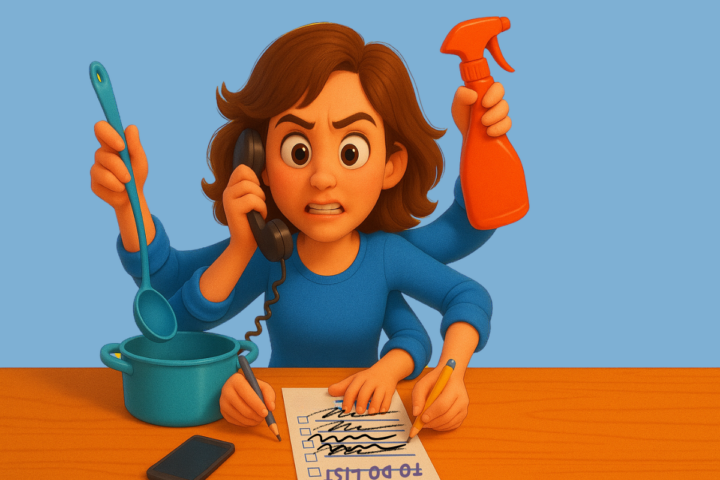You cry too easily. You’re too sensitive. Too dramatic. Too quiet. Too loud. Too needy. Too distant.
And somehow — also not smart enough. Not successful enough. Not chill enough. Not lovable enough. Not enough.
Sound familiar?
If you’ve ever carried the confusing ache of feeling like you’re simultaneously too much and never enough, you’re not alone. And no — it’s not because something is broken inside you. It’s because your nervous system, shaped by early emotional patterns, is trying to keep you safe.
Let’s slow this down together.
Your Body Learns Early What’s “Acceptable” to Feel
As kids, we learn how the world responds to our emotions—not through lectures but through tone of voice, eye rolls, withdrawn affection, overreactions, silence, and attention that only shows up when we perform well or shrink small.
We begin to internalize two painful truths:
- I might overwhelm people if I take up space with my needs, feelings, or intensity. (I’m too much.)
- I might not be worth love if I’m not perfect, helpful, calm, or low-maintenance. (I’m not enough.)
Your nervous system records these patterns, not as thoughts — but as survival codes.
This Isn’t Logic — It’s Survival
When your brain says, “Why can’t I just relax?” but your body feels flooded, frozen, or rejected, it’s not because you’re dramatic or broken. It’s because part of you is remembering.
It’s remembering what it learned:
- Tone it down, or you’ll be rejected.
- Do more, be more, fix yourself — then maybe you’ll earn safety.
These are not personality flaws. These are protective strategies your nervous system adopts when you don’t feel fully seen or supported.
The Too Much/Not Enough Loop in Real Life
This contradiction can show up in all kinds of ways:
- You finally share something vulnerable and then instantly spiral into shame.
- You succeed and feel guilty — like you’re taking up too much space.
- You try to advocate for your needs, then panic that you’re being selfish.
- You hold back in relationships because you fear being too intense — but feel lonely and unseen.
This isn’t weakness. It’s a sign that your nervous system is caught between protection and connection — trying to keep you safe but also longing to be known.
What Helps: Safety Before Self-Improvement
Instead of trying to “fix” this part of you, try this instead:
1. Normalize It. Feeling like too much and not enough is incredibly common — especially among women, teens, and those with early attachment wounds. You’re not imagining this. You’re not making it up. Your system learned it.
2. Get Curious, Not Critical. When the spiral starts, ask: What part of me feels threatened right now? What’s this reaction trying to protect me from? You might be surprised what answers come up.
3. Anchor Into Regulation. Small body-based practices (deep breathing, grounding through your feet, holding a warm drink, naming what you feel) help bring your nervous system out of that push-pull stress loop.
4. Practice Self-Compassion. Speak to yourself as you would to a friend who’s hurting: “You’re allowed to need care.” “It makes sense you feel this way.” “You’re not too much — you’re someone who learned to shrink.”
5. Explore It in a Safe Space. Therapy, journaling, or a creative practice can offer space to examine these patterns — not to shame them, but to understand how they formed.
You’re Not the Problem. The Pattern Is.
You’re not too much. You were never not enough. You’re someone who adapted to the emotional weather around you. And now, you’re learning to step outside of it — slowly, kindly, bravely.
This healing work doesn’t happen overnight. But with each moment of recognition, regulation, and reflection — you’re breaking the cycle.
You’re not a burden. You’re a person in progress. And you’re allowed to take up space.
Want to go deeper? Contact Me for a FREE Consultation.











